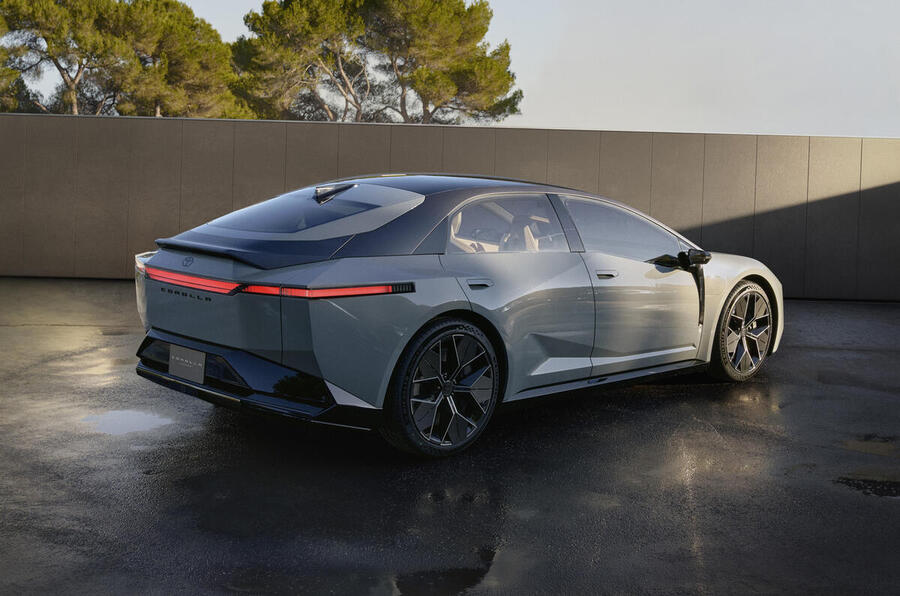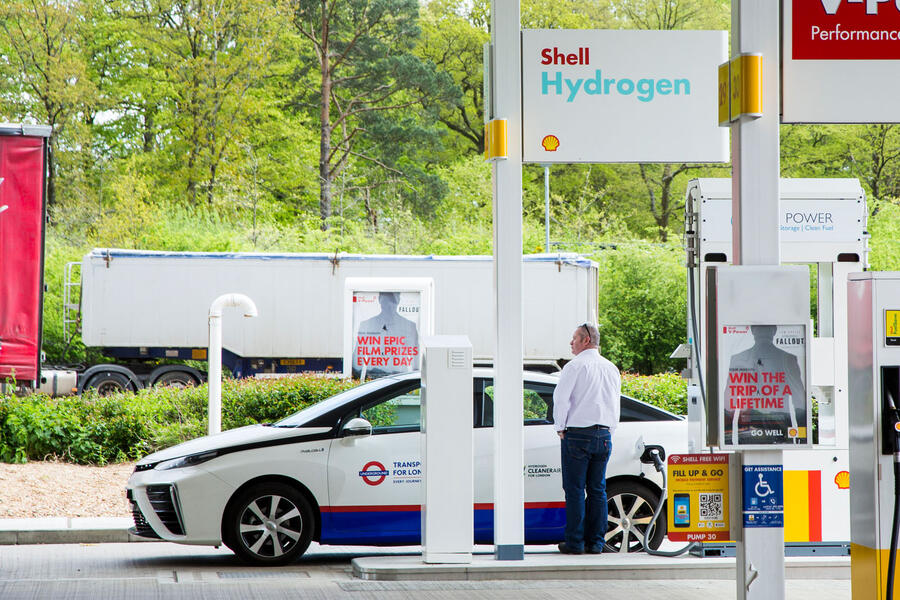Firm remains strongly committed to FCEVs – and says lorries hold the key to hydrogen fuelling infrastructure
The next Toyota Corolla is planned to offer a fuel cell powertrain (in addition to hybrid, ICE and EV options) as the Japanese manufacturer doubles down on hydrogen as "the energy of the future".
Toyota has remained a vocal and committed supporter of hydrogen propulsion as other large vehicle manufacturers have backed away from FCEV technology to focus on lower-emission ICE powertrains and new-generation BEVs.
It's one of just two manufacturers with an FCEV car on sale today (the Mirai, sold alongside the Hyundai Nexo) and has said it remains "fully committed" to rolling out hydrogen propulsion to its next-generation cars as part of its 'multi-pathway' approach to decarbonisation.
In line with that ambition, Toyota is working on a new-generation FCEV powertrain, said to be 20% more efficient than that in the current Mirai, and is working on a plan to build car and HGV fuel cells on the same line to cut costs.
The boss of Toyota's hydrogen division, Mitsumasa Yamagata, acknowledged that hydrogen propulsion remains a niche solution but predicted that it will play an increasingly important role as combustion is phased out. "Maybe the pace seems slow, but it is true that we are steadily making progress", he said.
As a statement of intent, he confirmed that "we are developing a hydrogen-based powertrain" for the next-generation Corolla, which has been previewed with a striking concept and already confirmed to offer plug-in hybrid, hybrid, pure-combustion and battery-electric power.
But work was still under way to ensure the concept's architecture could accommodate a fuel cell without any extensive redesign work.
"As you see from its beautiful proportions, we need a very smart powertrain. We are developing a hydrogen-based [system] for Corolla by reducing the cell size so that it can be much more compact," Yamagata said, adding that the priority was to ensure the systems fit "beautifully" into the new architecture.

Beyond the technical compatibility of hydrogen fuel cells, however, the primary inhibitor to driving uptake of FCEV cars is the lack of fuelling infrastructure - a shortcoming that won't be addressed while there are no vehicles to use it.
Yamagata outlined a solution for this 'chicken and egg' situation that involves increasing the amount of FCEV lorries on the road to lay the foundations for a more developed hydrogen refuelling network that can then be cost-effectively adapted for FCEV cars.
He noted that there are a number of hydrogen stations in Europe already (almost 300, according to official figures) but said almost all of them are for FCEV cars, of which there are very few examples on the roads.
"However, the movement to change heavy-duty trucks to hydrogen is now accelerating, so the current challenge is how we can actually convert the passenger vehicle hydrogen infrastructure into a heavy-duty truck hydrogen infrastructure," he said. "We think it's an opportunity for us, because if the trucks use a lot of hydrogen, the price of hydrogen will decrease."
Yamagata estimated that the average FCEV lorry uses around 120 times more hydrogen than an FCEV car.
He highlighted a recent proposal from Europe's Hydrogen Council (of which Toyota is a member) to establish a hydrogen fuelling station every 200km (124 miles) on the region's motorway network and said this could be key to making the powertrain a more viable solution for commercial and passenger vehicles.

Plus, because HGVs usually operate on fixed regular routes, the infrastructure can be concentrated on specific locations to give optimum coverage of a wider region, rather than clustering them all together and leaving large parts of the network uncovered.
However, Yamagata said, it's important that industry bodies, gas companies, legislators and politicians work together to bring the idea to fruition. If different organisations and regions begin rolling out hydrogen infrastructure separately, "we cannot enjoy the economic scale, and the hydrogen price would not decrease, and people would be left out of an excellent idea."
One other challenge in using HGVs as the basis for a springboard for the development of an FCEV car refuelling network is that HGVs use more energy-dense liquefied hydrogen;Â cars take it in more space-efficient gas form.
Yamagata said, though, that it's "completely 100% possible" to supply hydrogen in both states at the same refuelling sites, minimising the amount of locations needed and reducing installation costs.



